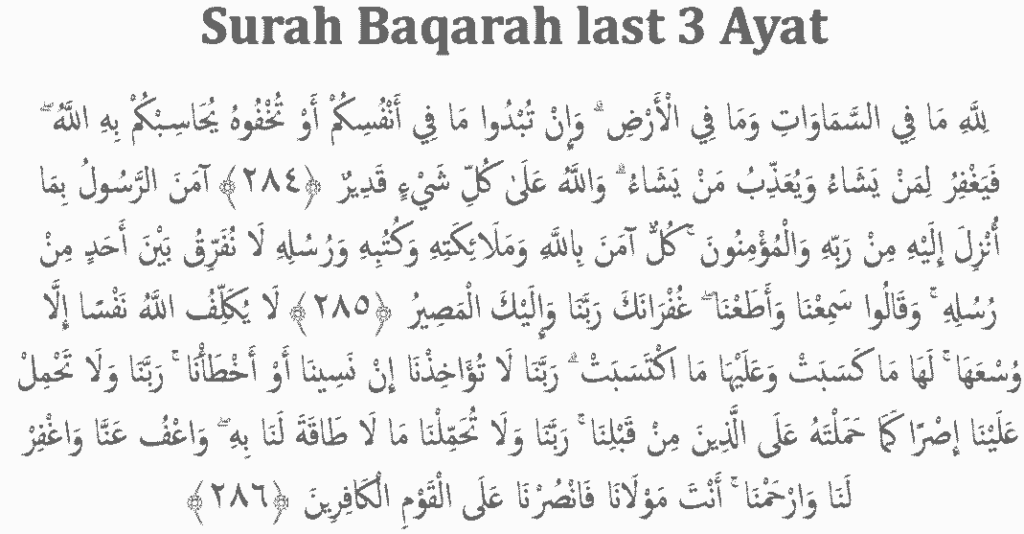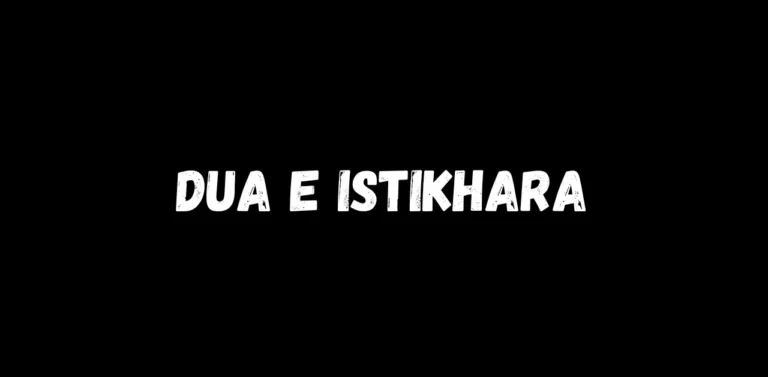Surah Baqarah Last 3 Ayat
Surah Baqarah is the second chapter of the Quran, with a total of 286 verses. It is one of the longest chapters in the Quran and covers a wide range of topics, including guidance for personal and societal matters, stories of prophets, and the importance of following Allah’s commands. The last three verses of Surah Baqarah hold significant importance and are believed to contain special blessings for those who recite them.
What are the last three verses of Surah Baqarah?
The last three verses of Surah Baqarah are Ayat 285, 286, and 287. These verses are known for their profound message and are often recited separately as a blessing or protection.
Can you provide the Arabic text of the last three ayat?
The Arabic text of the last three ayat is as follows:

What is the transliteration of the last three ayat in Arabic?
The transliteration of the last three ayat in Arabic is as follows:
285. “Amana ar-rasulu bima unzila ilayhi min rabbihi wal-muminoon. Kullun amana billahi wa mala’ikatihi wa kutubihi wa rusulihi. La nufarriqu bayna ahadin min rusulihi wa qaloo sami’na wa ata’na ghufranaka Rabbana wa ilayka al-masir”
286. “La yukallifu Allahu nafsan illa wus’aha laha ma kasabat wa ‘alayha ma iktasabat. Rabbana la tu’akhidhna in-nasina aw akhtana. Rabbana wa la tahmil ‘alayna isran kama hamaltahu ‘ala alladhina min qablina. Rabbana wa la tuhammilna ma la taaqata lana bih wa’fu ‘anna waghfir lana warhamna anta mawlana fansurna ‘ala al-qawmi’l-kafirin”
287. “Sadaq Allahu al-‘Adheem”
What is the significance of the last three ayat of Surah Baqarah?
The last three ayat of Surah Baqarah hold great significance in Islamic belief. They encompass essential teachings and serve as a reminder of Allah’s mercy and forgiveness. Reciting these verses is believed to bring numerous benefits and blessings to the believer.
What are the benefits of reciting the last three ayat?
Reciting the last three ayat of Surah Baqarah is associated with various benefits. It is believed to bring blessings, protection, and increase the believer’s faith. Additionally, reciting these verses is said to provide spiritual comfort and ward off evil.
Are there any specific Arabic texts or ayat recitations recommended?
While there are no specific Arabic texts or ayat recitations recommended for the last three ayat of Surah Baqarah, it is encouraged to recite them with proper Tajweed and understanding. Seeking knowledge about the meanings and interpretations of these verses can enhance the spiritual experience and connection with Allah.
Can you provide an English translation of the last three ayat?
The English translation of the last three ayat is as follows:
285. The Messenger has believed in what was revealed to him from his Lord, and [so have] the believers. All of them have believed in Allah and His angels and His books and His messengers, [saying], “We make no distinction between any of His messengers.” And they say, “We hear and we obey. [We seek] Your forgiveness, our Lord, and to You is the [final] destination.”
286. Allah does not charge a soul except [with that within] its capacity. It will have [the consequence of] what [good] it has gained, and it will bear [the consequence of] what [evil] it has earned. “Our Lord, do not impose blame upon us if we have forgotten or erred. Our Lord, and lay not upon us a burden like that which You laid upon those before us. Our Lord, and burden us not with that which we have no ability to bear. And pardon us; and forgive us; and have mercy upon us. You are our protector, so give us victory over the disbelieving people.”
287. Ameen
What are the last two verses of Surah Baqarah?
The last two verses of Surah Baqarah are Ayat 285 and 286. These verses contain important teachings and reminders for believers.
What is the significance of the last two ayat?
The last two ayat emphasize the concept of accountability and the individual’s responsibility for their actions. They remind believers that Allah does not burden a soul beyond its capacity and that each person will be held accountable for their deeds on the Day of Judgment.
Can you provide the Arabic text of the last two ayat?
The Arabic text of the last two ayat is as follows:
285. “Amanna ar-rasulu bima unzila ilayhi min rabbihi wal-muminoon. Kullun amana billahi wa mala’ikatihi wa kutubihi wa rusulihi la nufarriqu bayna ahadin min rusulihi wa qaloo sami’na wa ata’na ghufranaka Rabbana wa ilayka al-masir”
286. “La yukallifu Allahu nafsan illa wus’aha laha ma kasabat wa ‘al
Related Articles:




